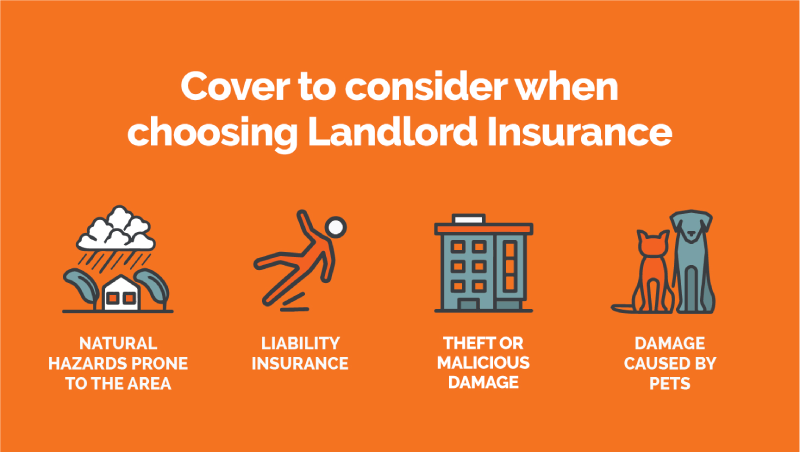Landlord Insurance in the ACT
Landlord Insurance in the ACT
Compare home and contents insurance the easy way*
Save time and effort by comparing a range of home and contents insurance policies with iSelect
What is Landlord Insurance?
Why would I need Landlord Insurance?
How much does Landlord Insurance cost in the ACT?
Does Landlord Insurance work differently in the ACT?
What should I consider when taking out Landlord Insurance?
Where can I find and compare Landlord Insurance Policies?
What is Landlord Insurance?
At its heart, Landlord Insurance is about protecting you from the unexpected risks that can come with renting out a property. This can range from not being able to rent out the property for a time after a natural disaster to organizing replacement locks and keys.
In the world of insurance, you might see Landlord Insurance bundled in with Home or Building Insurance, but it may also be a standalone product.
Why would I need Landlord Insurance?
In an ideal world, no one would need insurance for anything. But until we figure out how to get to that parallel universe, Landlord Insurance is the next best thing to get peace of mind when renting out your property.
While every Landlord Insurance Policy is different, you’ll generally see cover for things like:
- Loss of rental income if your property becomes unlivable, is vacant for a period or the tenant breaks the lease
- Missed rent when tenants default
- Theft from tenants or their guests
- Accidental and/or malicious damage caused by tenants or their guests
- Legal expenses related to tenant disputes
- Public liability
These and other types of coverage may come standard with the policy or be optional extras. To see what a policy covers, it can be worth sitting down with the Product Disclosure Statement (PDS) and a nice cup of tea.

How much does Landlord Insurance cost in the ACT?
A lot of variables go into deciding your premium, from how likely you are to claim to where the property is. For instance, you may find that you’re paying more for cover in the case of bushfires. Given the ACT is the Bush Capital, bushfires are pretty much a given, meaning the likelihood of you claiming — and thus your premium — could go up.
While cooking up your premium is a complex recipe that doesn’t mean you might not be able to add your own flavour to it. In fact, depending on your insurer and policy, you may be able to tweak your premium a bit by choosing to go with a different excess. Plus, those Landlord Insurance premiums could be tax deductible. Talk about tasty!
Does Landlord Insurance work differently in the ACT?
No matter where you live in Australia, Landlord Insurance works pretty much the same. But that doesn’t mean there isn’t an ACT twist on it either. The territory’s tenancy laws may actually impact your decision to get Landlord Insurance and what it looks like for you. Some things to keep in mind are:
- Cover for pet damage: Given you cannot reasonably refuse a tenant keeping a pet at the property, it might be a good idea to have Landlord Insurance that covers any damage Fluffy or Fido does.
- Keeping the property in good nick: You’re legally obliged to keep the place clean, safe and secure so it’s habitable (there’s not much point renting out a place no one can live in anyway). But it’s not just a legal thing; damage caused by the tenant could be linked back to you dropping the ball on repairs and maintenance, and thus may not be covered by your insurance.
- Valid reasons to break leases exist: Whether it’s a failure to meet the 2023 ceiling insulation regulation or another breach of the tenancy agreement on your end, or your tenant is experiencing domestic violence or hardship, there are lots of situations where a tenant can unexpectedly break their lease without needing to pay you back. Insurance may help you then manage the sudden loss of income.
You can learn more about renting in the ACT and get a sense of how different circumstances may need to be handled with the government-released Renting Book.
What should I consider when taking out Landlord Insurance?
Buying Landlord Insurance might require a bit more thought than choosing avocados at the supermarket (although that’s tricky too). You might want to think about:
- Inclusions and exclusions: There’s no one-size-fits-all policy, so maybe put together a wish list of what you’re after as you look around and check those PDS for all the juicy details.
- Premiums and excess: Balancing budget and risk can be tricky, so it might help to consider what you can manage regularly and if disaster strikes.
- Furnishings and contents: If you choose to rent out your property with added touches, you may need to look into additional policies, like Contents Insurance, to cover these too.
Where can I find and compare Landlord Insurance Policies?
If you’re ready to sleep a little easier at night rather than staying awake worrying about your rental property, we’re here to help (but we won’t tuck you in). We can help you compare a range of Landlord Insurance Policies from different providers right now.* Try out our online comparison tool or give us a call on 13 19 20.

.svg)






